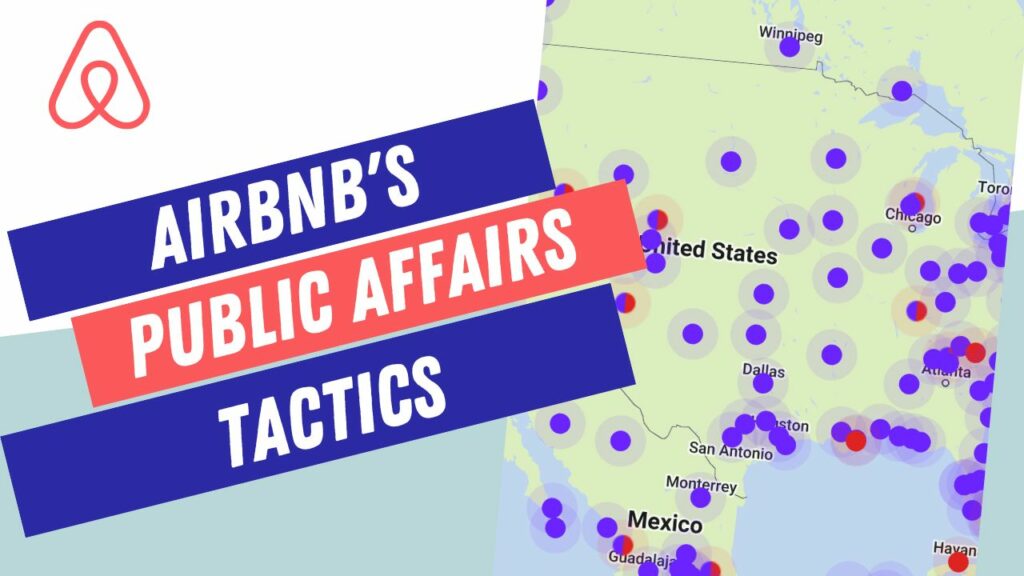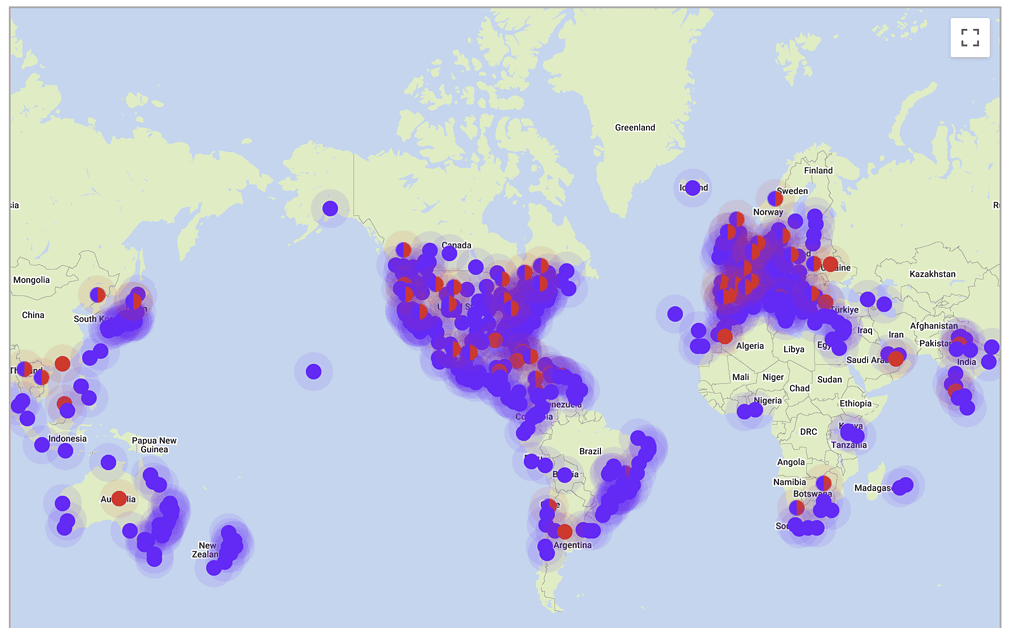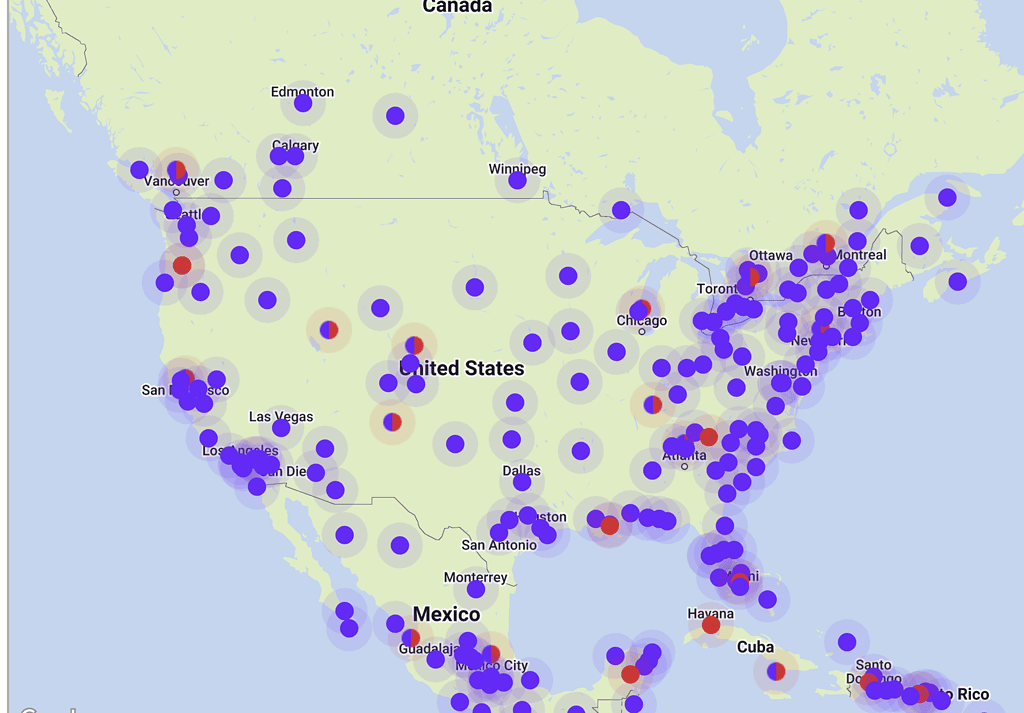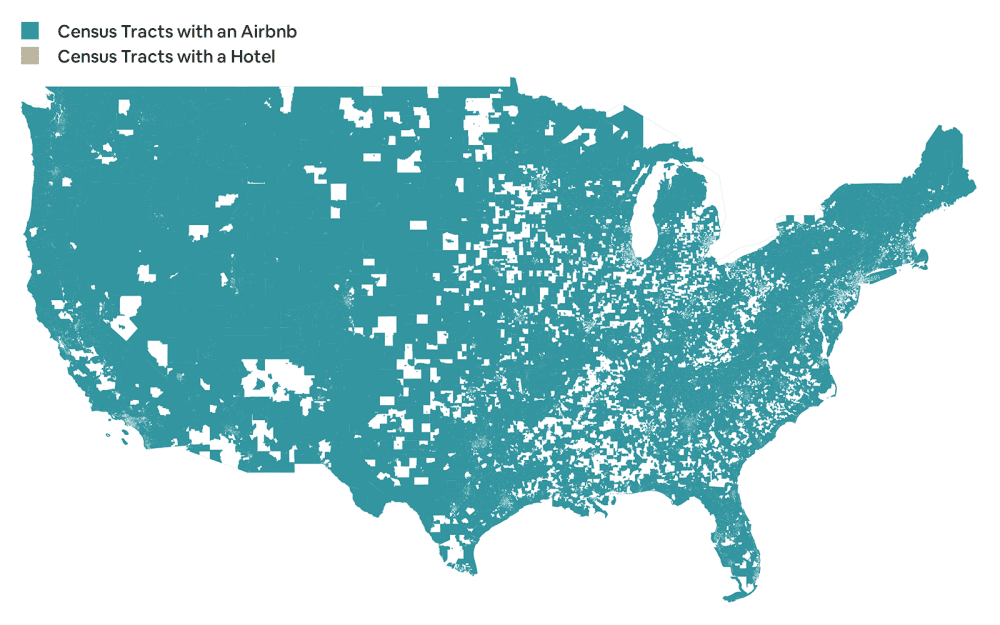In the face of increasing short-term rental regulations and bans, Airbnb has implemented advanced public affairs tactics to safeguard its operations in key markets such as the United States, European Union (EU), and the United Kingdom (UK). By actively engaging in grassroots movements, sharing data on economic benefits, and issuing official position statements, Airbnb has fought against restrictions. Furthermore, the company has also prepared for potential supply limitations by promoting Airbnb Rooms and utilizing search tools to redirect demand to areas with available supply. This article explores the various strategies employed by Airbnb to combat regulatory challenges and sustain its growth.
Public Affairs Tactics
A. Grassroots Movements
To amplify the voice of hosts and strengthen their collective impact, Airbnb actively encourages hosts to join local groups and communities. The Airbnb app and website invite hosts to participate in local host clubs and meetups to collaborate with like-minded individuals and local organizations. This grassroots approach enables hosts to advocate for their interests and contributes to shaping the narrative surrounding short-term rentals. It is a great way to channel the effort of local hosts, for instance, when it comes to writing to their local representatives about the merits of Airbnb.
Here are a few examples:
- Hosts see a prompt to join a local group in their hosting tool menu: “Connect with Hosts near you”
- The page presenting the local host clubs alludes to grassroots actions
“Make a Difference
“Collaborate with your community and local organizations to positively impact tourism and important causes in your area
- Airbnb Local Host Clubs (Facebook Groups)
A map shows the groups around the world ( Airbnb’s local clubs are hosted on Facebook Groups)
- Airbnb Meetups around the world https://airbnb-meetups.splashthat.com/
This page lists the meetups happening around the world. They can be for first-timers as well as about new reguluations, or to discuss industry standards.
For instance, in Nashville, Tennessee
Dear Nashville Hosts,
We are excited to bring the Nashville community together at our upcoming meetup on the 27th of June, Tuesday at 6:15pm CT.
Hello Nashville Area Hosts! We are excited to invite you to the next gathering of local hosts. During the meetup, there will be a presentation on the state of Nashville’s STR industry with local experts. There will be plenty of time to socialize and get to know other hosts. Plus, Airbnb swag, lots of swag! Did I mention Airbnb swag???
This meetup will be led by Barb, one of the Nashville Community Leaders.
Looking forward to seeing you there!
B. Data Sharing
One of Airbnb’s key public affairs tactics is the release of studies and data highlighting the economic benefits of its platform in local communities. By publicly sharing these findings, Airbnb wants to demonstrate the positive contribution it makes to the economies of various regions. These studies provide concrete evidence of the significant financial impact generated by hosts and guests, supporting jobs and stimulating economic growth.
Almost since its beginnings, Airbnb has started publishing tons of studies, in multiple languages and across multiple locations, based on their data and surveys, showing the benefits of home-sharing.
- For instance, in October 2021, Airbnb published in the UK report by Oxford Economics stating that:
- The overwhelming majority of money generated on Airbnb stays with Hosts and their communities
- in 2019, Host income and guest spending amounted to an estimated £5.1 billion in economic activity for the UK
- Research by Oxford Economics estimates spending by Airbnb guests supported thousands of jobs across the UK
- Same thing, when regulations were discussed in Scotland, it published a detailed Scottish & Local Tourism Economic Impact Assessment
In the US, it has recently published a map showing that Airbnb offers accommodations in areas where no hotels are available.
C. Official Position Statements
Airbnb also steps into public debate and regulatory discussions by publishing official position statements on key legal texts, particularly in the EU and UK. These statements articulate Airbnb’s perspective and concerns, ensuring that the company’s unique characteristics and the interests of its hosts are considered in the policy-making process. By participating in public dialogue, Airbnb aims to influence regulations in a way that accommodates the needs of its community.
For instance, in the England, Airbnb is particularly concerned about proposed changes’ impact on its hosts. The company feasr that the introduction of a registration scheme and the designation of a specific use class for short-term lets could impose additional administrative burdens and potentially hinder hosts’ ability to benefit from short-term letting as a supplementary income source.
With its “Short-Term Rental Initiative”, the European Union wants to simplify short-term rental regulations across Europe. The text, to be adopted by the European Commission in the first quarter of 2022, would ensure that clear and simple rules are in place for short-term rentals across the EU. The public consultation ended on December 13, just as Airbnb made public its own feedback on the proposal. The European Union is Airbnb’s number one market in the world in terms of the number of hosts and guests. The company is supporting harmonized EU rules and making thought-provoking proposals, from supporting an EU host register, recommending the creation of centralized database where platforms like Airbnb would report host activity (e.g. number of booked nights), making the registration easy and free for individual hosts.
III. Preparing for Potential Supply Limitations
A. Airbnb Rooms
Airbnb Rooms helps to maintain Airbnb’s supply and make revenues in areas with short-term rental restrictions and bans in several ways:
- Regulatory Compliance: By focusing on private rooms, Airbnb can bypass certain restrictions that are typically aimed at full-home rentals. Many cities and local jurisdictions place restrictions on short-term rentals, particularly those that are not owner-occupied. However, when the host resides on the property, it is often considered a different category of rental and is not subject to the same regulations.
- Perception of Affordability: Airbnb Rooms, by providing private rooms at affordable prices, helps in attracting a younger demographic that is price-sensitive. By making travel more accessible to those with limited budgets, Airbnb can expand its customer base and maintain a steady stream of revenue even in areas with short-term rental restrictions.
- Relationship Building: The Airbnb Rooms initiative encourages more of a human connection between hosts and guests, which can strengthen the Airbnb community and build a loyal customer base. This could lead to repeated bookings, contributing to a consistent revenue stream.
- Encouraging New Hosts: Airbnb Rooms can also encourage more people to become hosts, even if they only have a spare room available. This can increase the number of listings available in areas with short-term rental restrictions and provide more choices for guests, thereby generating more revenue for Airbnb.
Airbnb Rooms look more acceptable to public opinion and authorities than short-term rentals owned by investors or run by property managers because:
- It Reinforces Airbnb’s Original Mission: Airbnb Rooms harkens back to Airbnb’s original vision of providing authentic travel experiences by living with locals. This model is more appealing to public opinion and authorities because it seems more in tune with the spirit of homesharing, rather than commercialized short-term rentals.
- Mitigates Housing Crisis Concerns: One criticism of Airbnb has been that it contributes to housing shortages and increases rental prices by incentivizing property owners to rent to tourists rather than locals. However, with Airbnb Rooms, locals are still living in their homes and simply renting out extra space, which appears less detrimental to the local housing market.
- Promotes Authenticity: Airbnb Rooms are more likely to be perceived as contributing positively to the local community and economy, as they are more likely to be owned and managed by local residents. This contrasts with properties owned by investors or managed by property managers, which can be seen as contributing to the commodification of housing and the displacement of local residents.
- More Accountability: Airbnb Rooms are often owner-occupied, which means there’s someone responsible on-site. This can lead to fewer issues with noise, disruption to neighbors, and property maintenance, which can be a concern with short-term rentals managed by investors or property management companies. This can result in a more positive view of Airbnb from local authorities and neighbors.
B. Search Tools: Introduction to search tools like “I’m flexible” that direct demand to areas with available supply, bypassing restrictions.
Airbnb’s “I’m flexible” search tools can help Airbnb in the context where there are short-term rental bans and restrictions:
- Flexible Dates: This feature allows users to define a more extensive time frame for their travels, such as “sometime in the next few months”. When there are rental bans and restrictions, availability may be scarce or non-existent on certain dates. By allowing users to select flexible dates, Airbnb can match users with accommodations that are available during periods when there are fewer restrictions, thereby ensuring continued business.
- Flexible Destinations: This feature helps users discover new destinations and types of properties they may not have considered otherwise. In a context of rental bans, some areas might have stricter regulations than others. By promoting diverse and unique accommodations, Airbnb can direct users towards areas with fewer restrictions. Users get to experience new types of stays (like treehouses or yurts) while Airbnb continues to operate in areas where it has supply.
- Flexible Matching: This feature helps by showing accommodations that closely match the user’s criteria but may not meet every single requirement. In a situation where supply is limited due to restrictions, this feature helps to maximize the chances of a match between the user’s needs and the available accommodations. By highlighting what aspects do not match the user’s original criteria, Airbnb provides transparency while still presenting viable options.
In a nutshell, these features can help Airbnb manage its supply and demand more effectively by allowing greater flexibility in terms of booking times, locations, and accommodation characteristics. They can assist Airbnb in directing traffic to areas where it has supply and can also help change the perception of the Airbnb brand to encompass a broader range of accommodation types, beyond the urban apartments traditionally associated with the platform.
Conclusion
Airbnb’s advanced public affairs tactics have proven instrumental in combating short-term rental regulations and bans across its key markets. By engaging in grassroots movements, sharing data on economic benefits, and issuing official position statements, the company actively shapes policy discussions. Moreover, by preparing for potential supply limitations through initiatives like Airbnb Rooms and search tools, Airbnb adapts to regulatory challenges and sustains its growth. In an ever-evolving landscape, these strategies play a crucial role in maintaining Airbnb’s presence and influence, ensuring that it continues to provide unique travel experiences while addressing concerns of local communities and authorities.













